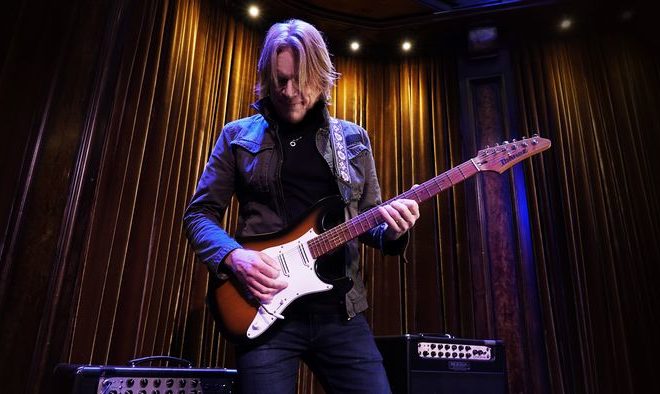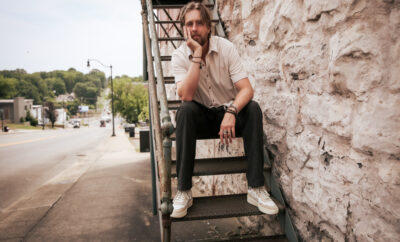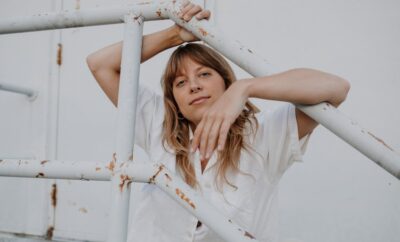 Moti Kashiuchi Hoshino
Moti Kashiuchi Hoshino
Interviews
Andy Timmons – Queen
By: Jamie Steinberg
Q) How would you describe your sound?
A) That’s a broad question! I think that over the years…I mean, I’m certainly known as a rock guitar player because I came up in the 80’s with a band called Danger Danger. Then, subsequently, I put out a series and still continue to put out instrumental guitar music. But as far as describing it, I think over the years I’m just trying to create the most pleasant tone that I can, which is challenging because in the rock field it can be kind of aggressive and almost abrasive a sound with certain types of music. I’ve loved jazz, blues, classical and gypsy jazz. And I do play all those styles and love them all. Whatever my sound is it is hard to say because there is such a sonic variety that I do, but I always hope to find the sweetest tone for each piece of music I’m doing at the moment – whatever is going to make the most impact and have the most emotional impact that I can within that piece of music.
Q) Who are some of your musical influences?
A) I started playing guitar when I was five years old. So, I’ve been doing this for fifty years. It all just started with the 60’s. I had brothers that were buying pop and rock albums out of England – all The Beatles, Dave Clark Five and The Kinks. All the collection that my brothers were acquiring from that time in pop and rock were my foundation. The utmost has to be The Beatles because I still obsess over them. That had to be my first love. The way they made my feel more than anything, but once I realized that it was the guitar that was part of that music that really drew me in. I have to cite The Beatles as being an early guitar influence. Then, in the 70’s as I was really kind of teaching myself how to play, all I had was a record player and a guitar that I had bought at a local pawn shop. I had to teach myself how to play. I took lessons later on, but it was all the 70’s rock – it was KISS really. Maybe Foghat and Rush. Those were certainly popular on rock radio back in the day. My first concert I saw when I was thirteen years old was KISS on the Destroyer Tour. Seeing that spectacle and hearing that music live and the power of the guitar…That’s when I knew this was what I was going to do. The next real pivotal influence for me is a guy named Steve Lukather who played (and still does) in the band Toto. He was just kind of the consummate professional musician and he could adapt to any style of music, but primarily his own style of music was rock. Something about his passion and the way he played really drew me in.
Q) What inspired you to do this tribute to Queen?
A) I had been on a path of really learning how to play a piece of music with kind of a slightly distorted electric guitar sound. A jazz guitarist will play what is called a “chord-melody” version of jazz standards. They are playing the chords, the melody and the bassline. But with a slightly distorted guitar, any kind of advanced harmony can be kind of muddy. But I started the process with my band in 2006 called Resolution and on that record I decided not to do the overdose. I was only doing one guitar, bass and drums on every song, but what was hellish for me was to represent the harmony and the melody in the fullest possible way with only one guitar performance. So, that record was a turning point I think for me stylistically. Then, I did a version of The Beatles Pepper record done in the same way where it was just one guitar, bass and drums representing each song on that record. It started off with just me playing solo arrangements of those songs, but wherever I could cover the chords and harmony – whatever element of the song that was present when I heard it in my head doing it from memory. That’s what I tried to represent in one linear performance on the instrument. Then, fast forward to 2018 and the Bohemian Rhapsody movie comes out. I went to see it on November 2nd, which was my 22nd wedding anniversary! We celebrated our wedding anniversary by going the 11am showing of Bohemian Rhapsody here in Texas. There were so many emotional moments in it for me. It sent me on a path. I grew up with the A Night at the Opera album, which had “Bohemian Rhapsody” on it. The follow up record was called A Day at the Races. I just kind of went back and listened to the records that I knew so well, but also revisited some of the catalog of theirs that I didn’t know as well. I had to leave on a tour, but any downtime I had was voraciously absorbing the music. I was watching YouTube videos and such. Even before I left on the tour, I was kind of dabbling around with “Bohemian Rhapsody” in my office. I thought, “This might be impossible, but what if I can play a solo version of that song?” I started working on it a little bit and my wife texted me. I was in Europe and she was paining part of our house. She said she was listening to Queen and said, “I can’t wait to hear your version of ‘Bohemian Rhapsody,’” but by that time I was like, “Ah, there’s no way that I could pull that off.” I abandoned it and thought there was no way I could do that. My wife texting me that she couldn’t wait to hear it was something she never does. She hears when I’m working on stuff and is always very aware when something is happening, but she’s not one to say, “I can’t wait for you to finish this…” So, I went, “Oh shit! I guess I have to keep working on it because she’s expecting to hear it!” It was kind of for her that I continued down the path. Once I figured out how to do certain things, I was starting to hear Freddie’s voice when I played and I thought, “Okay, I’m on to something here.” That’s when I decided to go through with it and once I completed the arrangement I thought it was worth documenting. I didn’t think I wanted to put it on a record, but I thought I’d do a little video in my home studio. That’s me playing it. It’s not edited in any way. It’s me playing it live, which was also a challenge because once I spend the time to work on something every detail is in my head of how I want it to seem. I was tempted to fix little thing that weren’t quite how I wanted them I decided to leave it a very raw and natural expression of the song. It was an honor trying to capture the intimacy of Freddie’s voice and of course all the beautiful of Brian May’s guitar work.
Q) Did you learn anything of interest throughout your Queen research?
A) At the beginning of the video I show a coin. It’s a 1947 King George Six Pence, which was the currency in the UK. That’s what Brian May plays with. He plays with that exact coin. All those guitar parts that you hear on Queen records are done with a coin identical to that. As a guitar player we’re used to playing with picks, but they are made out with various forms of plastic and they have a different sound to them. Growing up I always heard that those guys used a coin as a pick. I thought that had to be impossible to play so as a kid I would pick up a quarter thinking that had to be it since it was a big coin. When I was in Europe after seeing the movie and had all this down time, I started watching interviews with Brian May and he said he used this specific coin. He likes them to be from 1950 or before because (as has happened with US currency as well) they sometimes will change the composition of what the coin is made out of. American coins change after 1964. All the silver coins change from silver to a bronze composite alloy – I’m not 100% sure. But apparently in England the same thing happened after 1950. They sound different just because it’s a different material you are playing with. So, he likes to use a 1947 coin because it’s his birth year. So, that night I’m in my hotel room in Budapest and I’m typing into Ebay “1947 King George Six Pence.” When I get home two weeks later I’ve got these packages of coins that I ordered on Ebay. Unbeknownst to me, I really was expecting something the size of a quarter with a serrated edge to get that sound. That coin is actually barely bigger than a dime. It’s a very small coin. That’s what I used to play that entire performance. It very much helped me get a certain vocal sound out of it. Once you hear the sound of that coin you start to hear it in Brian May’s guitar tones and it’s an important part of his sound – the way that the metal instead of the plastic has a way different timbre. And some of the overtones he gets on that homemade guitar as well…It’s the combination of his fingers and that unique instrument and that coin has so much to do with that sound. It’s only appropriate that I try to attempt that piece of music with that coin. That was part of the challenge too, but it was a lot of fun trying to get that sound with that unique piece of metal.
Q) That coin must be a prized possession now!
A) It’s kind of turned into a fun thing for me. I have so many guitar friends. Let’s just say I might have horded them a little bit. I kind of kept buying them on Ebay. So, now I give that coin as a gift to any of my guitar friends that want to experiment on their own. They aren’t that expensive. You can still find them for a reasonable price. So, it’s been a fun gift to give to some of my guitar buddies like, “Hey, this is the Brian May coin! You have to check this out!”
Q) You’ve had an incredible career! To what do you attribute your longevity?
A) I’ve had an incredible career and I get to play guitar. This is how I survive somehow. I never think about it in a commercial way or economics. I keep following what makes me happy and it always inspires me. We talked about inspirations and The Beatles were such great songwriters because they learned so many songs. They were a cover band initially and they were playing eight or ten hours a night. So, they learned so many songs! And that’s always the way you can learn. Kind of examine and admire what comes before you. And it all adds up in the way you edit and the way you choose sometimes the very different elements from jazz to Queen – whatever it might be. That is what helps shapes each artist into who they are – their loves, passions and drives; whatever they have collected as music that moves them. That becomes their benchmark of whatever they are trying to create. They want to live up to what they love that has come before them. I’m very thankful that at my age I’m still that fan. I’m still that kid that admires all these great musicians that have come before me or are active now. It doesn’t matter when the music was born. If it resonates with you it’s so beautiful to try to absorb it in that way and try to make it tick.
Q) Will there be a full album or EP coming in the near future?
A) I’m doing lots of other arrangements of Queen songs. I’m not sure if I’ll record a Queen record at some point. But I love going through the process because it just makes me happy. Putting that video out there, the response has been incredible! I couldn’t have even imagined that it would have resonated with people the way it has. We are talking about it though and that’s pretty cool!
Q) What advice would you offer to up and coming musicians or those that have a passion for playing guitar?
A) That’s the recurring theme throughout my, admittedly, very haphazard career. Whenever I’ve made a decision or a direction based on either money or whatever I thought somebody else wanted, it was never the right decision. It is this recurring reinforcement of following your heart, listening to your inner voice of what really you want to do. It may not be popular at that time, but if it is authentic and something that resonates with you…Once you develop it to a point where it is really art, people will feel that it is real. They will feel that this is really you. I think people can hear the difference. Like I say, I’ve been doing this for fifty years and I feel like a beginner, as far as where I am with the instrument. I realize I have a certain amount of ability, but I also feel like there is a really, really long way to go to get where I want to go – what I hear in my head and what I think is possible on my instrument. So, the thing that I would say to anybody is first you have to do it because you love it. If that’s the case, nobody is going to tell you to work hard because you’re going to do it because you love it. That’s the first benchmark. If you’re really enamored with the sound, the look, the feel and everything about the guitar (or whatever it is instrument wise, career choice wise or even computer programming) if you love it enough, you’re going to stick to it. And nothing can replace time dedicated to your specific passion. For guitar players, it’s fingers on the frets. We can sit here and talk about it all day and watch videos of how to get a better sound. And that’s all valid…I mean, I love going on the internet hearing my favorite players and watching them play, but nothing replaces the time on the instrument. A lot of it is persistence and dedication. You’ve got to put the work in, but if you love it enough…It never felt like work to me. I couldn’t wait to learn and to play along with my KISS record, Peter Frampton or Rod Stewart – whoever it was. I wanted to be in that band and in my bedroom I was! I had the cheapest out of tune guitar, but I was in that band and getting experience playing “Show Me The Way” or whatever it might be. The first one I figured out was “Every Picture Tells a Story” by Rod Stewart. Then, the KISS Alive record came out and that’s how I learned how to play electric lead guitar.
Q) What would you like to say to everyone who is a fan and supporter of you and the work you do?
A) I’m more thankful than ever that there are people that do appreciate what I’m doing or as I like to say, “what I’m trying to do.” [smiles] It’s really heartening. So, I can say at this part in my career I haven’t really changed specific direction so much. I’ve done a lot of things. My last official recording was a Bossa nova recording I did in Brazil a year and a half ago. It’s all emotional intent, integrity and tone and musical direction. I’m thankful that people are listening and accepting of the different paths that I might go down. Whether it resonates with what they are into at that time musically or not, maybe it will at some point. Again, I’m just so appreciative that there are people who are resonating with what I’m doing, and it just fortifies me even more to know that I’m on the right path. It just makes me want to work harder and keep trying to create music. For all musicians or anybody in any artistic field, whether it be dancing, painting, acting or music it’s so important that we’re doing what we can to bring beauty to the world because we need it now more than ever. We can’t necessarily change certain things that are going on in the world, but we can sure do some positive things. So, anything positive! That’s what I like to see music have a voice in this world. Any kind of beauty that we can put out there is needed now more than ever.





You must be logged in to post a comment Login